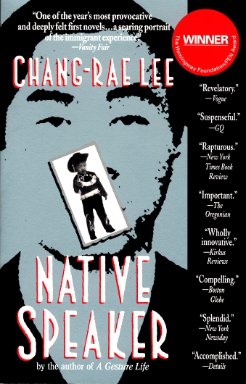The day my wife left she gave me a list of who I was.
I didn’t know what she was handing me. She had been compiling it without my knowledge for the last year or so we were together. Eventually I would understand that she didn’t mean the list as exhaustive, something complete, in any way the sum of my character or nature. Lelia was the last person who would attempt anything even vaguely encyclopedic.
But then maybe she herself didn’t know what she was doing. She was drawing up idioms in the list, visions of me in the whitest raw light, instant snapshots of the difficult truths native to our time together.
The year before she left she often took trips. Mostly weekends somewhere. I stayed home. I never voiced any displeasure at this. I made sure to know where she was going, who’d likely be there, the particular milieu, whether dancing or a sauna might be involved, those kinds of angles. The destinations were harmless, really, like the farming cooperative upstate, where her college roommate made soft cheeses for the city street markets. Or she went to New Hampshire, to see her mother, who’d been more or less depressed and homebound for the last three years. Once or twice she went to Montreal, which worried me a little, because whenever she called to say she was fine I would hear the sound of French in the background, all breezy and guttural. She would fly westward on longer trips, to El Paso and the like, where we first met ten years ago. Then at last and every day, from our Manhattan apartment, she would take day trips to any part of New York City, which she loved and thought she would never leave.
One day Lelia came home from work and said she was burning out. She said she desperately needed time off. She worked as a speech therapist for children, mostly freelancing in the public schools and then part-time at a speech and hearing clinic downtown.
Sometimes she would have kids over at our place. The children she saw had all kinds of articulation problems, some because of physiological defects like cleft palates or tied tongues. Others had had laryngectomies, or else defective hearing, or learning disabilities, or for an unknown reason had begun speaking much later than was normal. And then others—the ones I always paid close attention to—came to her because they had entered the first grade speaking a home language other than English. They were nonnative speakers. All day she helped these children manipulate their tongues and their lips and their exhaling breath, guiding them through the difficult language.
So I told her fine, she could take it easy with work, that I could handle the finances, we were solid that way. This is when she professed a desire to travel—she hadn’t yet said alone—and then in the next breath admitted she’d told the school people not to call for a while. She said she felt like maybe writing again, getting back to her essays and poems. She had published a few pieces in small, serious literary magazines early in our marriage, written some book reviews, articles, but nothing, she said harshly, that wasn’t half-embarrassing.
She handed the list to me at the Alitalia counter at Kennedy, before her flight to Rome and then on to Naples and, finally, Sicily and Corsica. This was the way she had worked it out. Her intention was to spend November and December shuttling between the Italian islands, in some off-season rental, completely alone.
